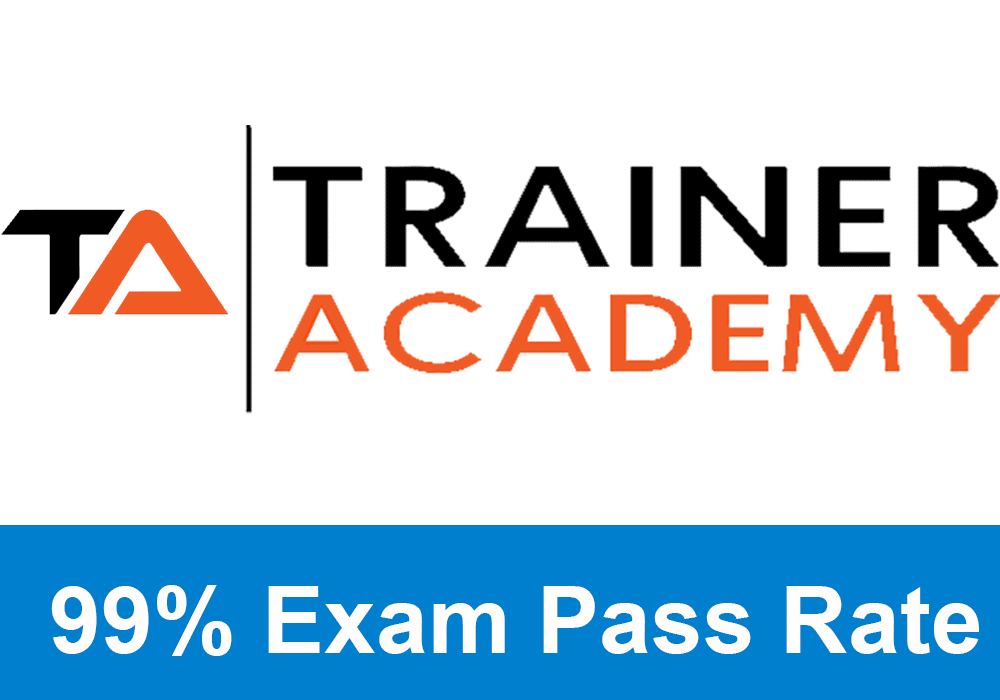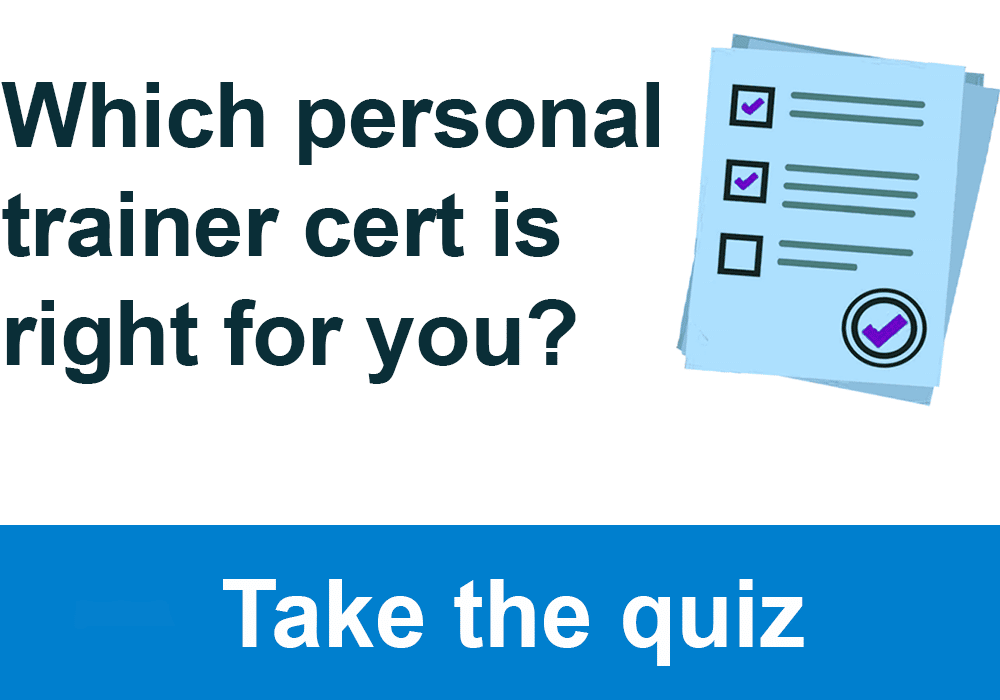
Senior personal training is much different than working with young and fit individuals. Most personal training textbooks provide a specific chapter on working with special populations.
The menu at the top of this page will answer any question related to your personal training. If you have any questions, don’t hesitate to leave me a comment here (I’ll respond within 24 hours). Also, visit the home page for the most recent and popular articles.
I suggest you take the quiz to find out which personal training certification Is the best for you.
Much of that chapter includes working with older adults. Over my years as a personal trainer, I’ve enjoyed working with dozens of elderly clients. Let’s talk about how to work with these clients effectively.
My definition of elderly is clients who are 65 or older. Most individuals who purchase personal training (especially in commercial gyms) are seniors.
If you are starting out in the industry, chances are one of your first few clients will be in their 60s.
Let’s jump right into the tips I have for you!
Choosing the right certification for coaching senior fitness
Coaching senior fitness clients means ensuring you get the knowledge and skills you need to effectively meet the needs of older adults. The following are some of my choices for best senior fitness certifications.
NASM Senior Fitness Specialist
Consider looking into the NASM Certified Personal Trainer and then stacking it with the NASM Senior Fitness Specialist certification.
The NASM SFS effectively applies the top-notch NASM OPT Model and scientific rigor to the practice of coaching senior clientele.
This includes the anatomical, physiological, and psychological considerations relevant to training older adults to understand the basis for modifications from traditional coaching and program design principles.
Exclusive PTP CPT Offers |
||
|---|---|---|
Most Popular Cert | Best Online NCCA Cert | Best Study Materials |
Gold Standard Cert | A Good Option | Best CPT for you?  |
You’ll also learn how the flexibility, aerobic, core, balance, plyometric, and of course, resistance training guidelines differ when it comes to older adult training using the OPT Model.
Finally, the NASM SFS discusses key program design, nutrition guidelines, and business development for trainers focusing on the senior fitness populations.
ISSA Senior Fitness Instructor
The ISSA Senior Fitness Instructor is another great certification for specializing in fitness training for older adults. This certification helps its graduates understand the various chronic conditions associated with aging and the best ways to address these conditions through exercise.
This also includes administering proper health and fitness assessment methodologies.
ISSA offers several great resources for helping students pass the senior fitness instructor program. The entire program is delivered online with an open-book exam that you can take on pencil and paper or through an online testing portal.
Regardless of whether you choose the NASM SFS, ISSA SFI, or some other senior fitness specialist certification, it’s vital to equip yourself with the requisite knowledge and skills needed to safely and effectively coach older adults if you plan to work with this population.
Once you’re certified in senior fitness, it’s time to dive into the actual training of your clients.
Assess their Fitness Level Before Starting a Program
Fitness assessments for senior individuals are ten times more important than for younger clients. Before you perform any fitness assessments, you need to review any previous injuries, illnesses, or diseases that might impact the training or them.
Pay particular attention to injuries at the joints, such as knee, hip, or shoulder injuries. These injuries are important in how they move their bodies and what kind of range of motion they can perform.
If your client is in rehab with a physical therapist, get the therapist’s contact number. This way, you can better understand the client’s exercise limitations.
Exclusive PTP CPT Offers |
||
|---|---|---|
Most Popular Cert | Best Online NCCA Cert | Best Study Materials |
Gold Standard Cert | A Good Option | Best CPT for you?  |
Postural problems affect elderly clients more than most people know. I recommend you check out a great article from “Ask the Trainer” about muscular imbalances.
Fitness assessments are also critical. This gives information on their resting and exercises heart rate. You need to implement a cardio stress test to determine how fast their heart rate jumps.
Use the formula 220 minus their age to determine their approximate maximum heart rate. Ensure your client starts within a healthy heartbeat range during this stress test.
Pay close attention if your client has had pre-existing problems, such as a stroke or a heart attack.
Start Slow: Keep the Range of Motion Low
As we get older, our range of motion starts to decrease. We get less flexible. I like to start my senior clients with a lower range of motion for most exercises. This enables me to see their base level.
Ask them how the movement feels as they go through the range of motion. Determine if they have any discomfort. Resistance training puts a lot of stress on the joints, especially at the beginning.
It is a smart idea to use static exercises in the early stage. Static activities build good base strength and minimize the range of motion at the joints.
Be Aware of Their Perceived Exertion Level
You should always have an intuitive idea of how challenging a workout is for your client. This feeling is still extremely subjective. The only accurate way to find out is by asking them.
I have come to understand that perceived exertion levels are much different for people in their 60s compared to individuals in their 40s. You need to monitor their heart rate as you ask them questions.
After a few training sessions, you should know where your specific client is and how hard you can push them.
Conclusion
In brief, I have three tips for personal training with seniors. Fitness screening and fitness assessments are some of the most important things you must do for your older clients.
Before getting started, you need to assess their range of motion, cardiovascular capabilities, and strength levels. You should focus on your client’s range of motion at the beginning and start with a lower ROM.
This is especially true if your clients have pre-existing musculoskeletal injuries impacting how they move. The last tip is to pay attention to their perceived level of exertion during the workout.
Everyone is different in this regard, and the only way that you can find out is by asking.
I hope you enjoyed my article on training elderly individuals. Share your own experience working with senior clients in the comment section! You should also check out some of my other articles in my personal training tips part, such as Personal Training Tips for Beginners and Beginning Core Workouts.
A fantastic certification you should check out that prepares you well for working with elderly individuals is a Health Coach certification. Check out my lengthy article on How to Become a Health Coach if you’re interested!

 Have a question?
Have a question? 
Amazing information Tyler. I really like it. When we entered the age of 50 or 60 then our body has totally changed. It is mandatory for senior people to exercise with limited mobility. They can start with a little warmup. They can do some basic workout in their starting training like arm stretch, Leg Stretches, Dumbbell Workouts, Seated Twists, and Thigh Presses.
Hey Daniel,
definitely agree with you. Training different clients in different age ranges is very important information to obtain an order to become a good personal trainer. Training tons of senior clients myself, I learned a good amount of tips and tricks to work with them.